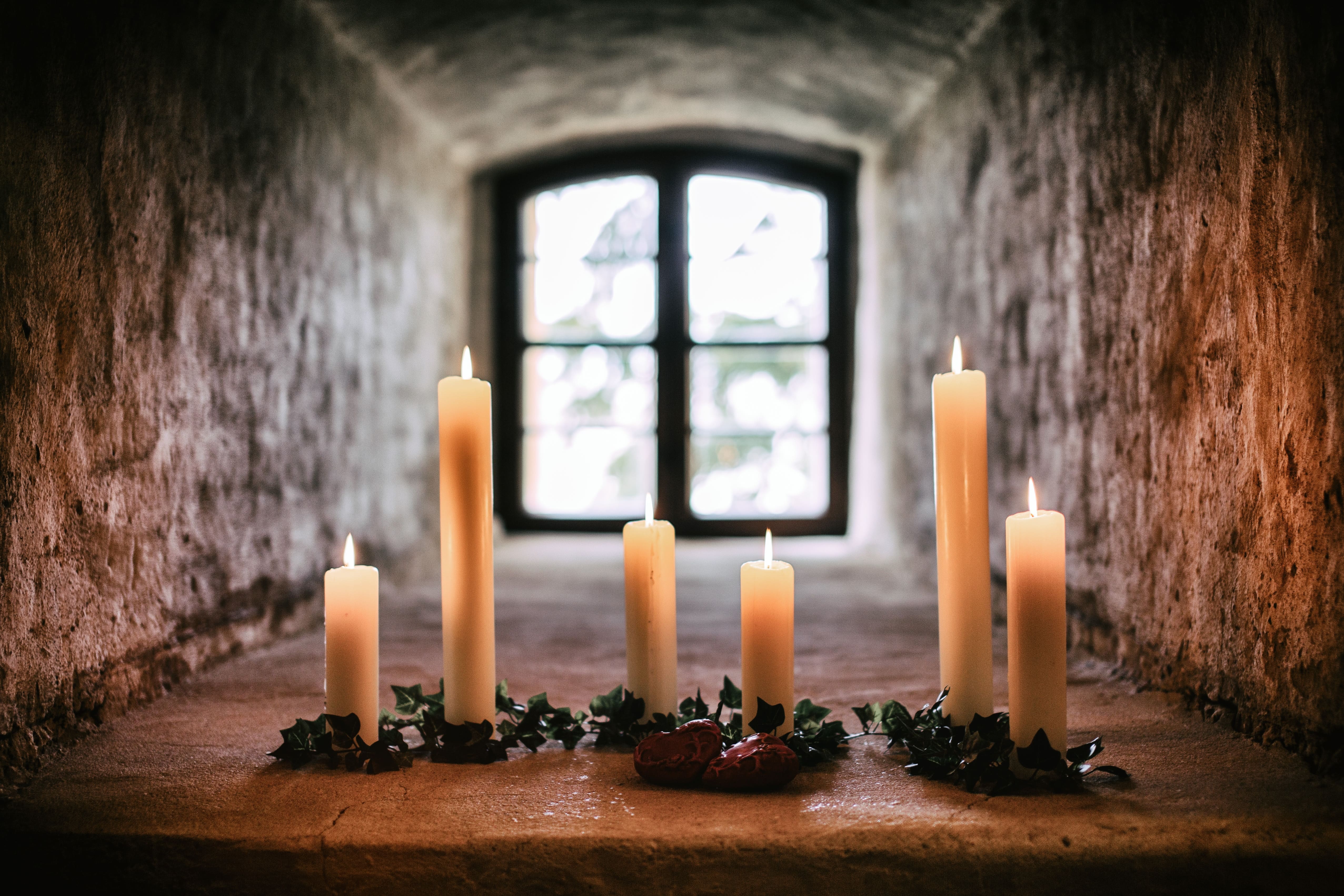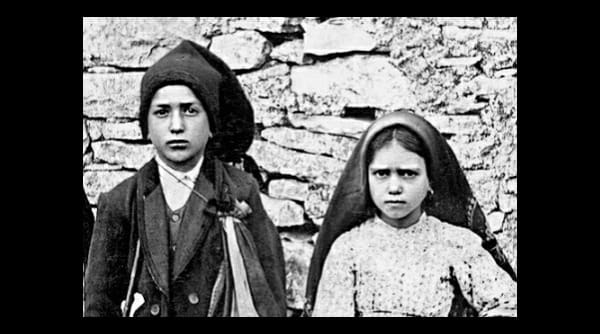Just two years ago, two of the young visionaries of Fatima were added to the living links in the Church’s rosary of Saints.
In front of half a million pilgrims, and with many of us watching from home, Pope Francis canonized Jacinta and Francisco Marto on May 13, 2017 – the centennial of the apparitions of Our Lady at Fatima, Portugal.
February 20 marks their feast day as canonized saints – a day set like a new sun in the expanse of our liturgical calendar, a day to celebrate God’s goodness in granting us the company of these small “sentinels of the dawn” – a phrase used by Pope Francis in his canonization homily. It’s an appropriate image, too – the visions of Our Lady at Fatima were soaked with a heavenly sunshine from beginning to end.
It was the feast of Our Lady of the Blessed Sacrament – May 13, 1917, when the Blessed Mother appeared to Jacinta, age seven, a pretty and playful girl, mischievous nine-year-old Francisco, and their ten-year-old cousin Lucia as a woman “made of light, holding a rosary in her hand.” The shepherd children found themselves surrounded by light, a light which not only enveloped them but penetrated to their hearts: “We were burning in that light which is God and we were not consumed,” Francisco would say later. The Lady asked them to return on the same day of the month for the next sixth months, to bear their sufferings in atonement for sin and for the conversion of sinners, and to pray the rosary for peace. She assured them of heaven, although Francisco, she gently admitted, would “first have many rosaries to say.” Revealing in the second apparition that the youngest would join her there soon, she foretold that Lucia would remain on earth to spread devotion to Her Immaculate Heart, and then opened her hands to enfold them again in brilliant light. “In it, we felt we were submerged in God,” Lucia said. “Jacinta and Francisco seemed to be in that part of the light that was rising to Heaven, and I in the part spreading over the earth.”

And so, while suffering the skepticism and ridicule of many, including their own families, the warnings of the parish priest, and the bullying threats of the atheist government, together the children would receive five more apparitions of the luminous Woman. She would reveal herself during the final one as “Our Lady of the Rosary.” Throughout the apparitions, the message was consistent: amendment of lives, sacrifices to atone for sins and for the conversion of sinners, and prayer, especially the daily rosary.
On the day of the final vision, as she had promised months before, Our Lady punctuated her message with a dazzling miracle: witnessed by tens of thousands on the muddy field of the Cova da Iria, the sun seemed to break loose and “dance” in the sky, casting the crowd in varying colors and simultaneously frightening and elating the faithful – and skeptics – gathered there.
Little Jacinta and Francisco were not elevated to sainthood because of visions and miracles alone, however. Before dying from influenza just two years later, they became consumed with devotion to the Blessed Sacrament, intercessory prayer, and voluntary mortification for sinners. The message of Our Lady of the Rosary would permeate their inmost being, transforming them into living sanctuary lamps – illuminating the Gospel, burning from within – and this time, finally consumed by that radiant love. On the occasion of their beatification in the year 2000, Pope Saint John Paul II declared, “…the Church wishes to put on the candelabrum these two candles which God lit to illumine humanity in its dark and anxious hours.”

In a world so overcome by darkness, can we take these little lights into our own devotion? Can we ask our newest saints to become our dearest friends, adopt them into our hearts in order to shine a light on the needs of our neighbor and the shadows in our own souls? The Church has raised them up so that we can. And if we will, then how much more will Mary’s mantle of light – which always exists to reveal on her Son – spread from Fatima to the world, all the way to the corners of our kitchens, offices, cars, and coffee shops? As Pope Francis urged during the children’s canonization Mass:
Indeed, God created us to be a source of hope for others, a true and attainable hope, in accordance with each person’s state of life. In “asking” and “demanding” of each of us the fulfillment of the duties of our proper state (Letters of Sister Lucia, 28 February 1943), God effects a general mobilization against the indifference that chills the heart and worsens our myopia. We do not want to be a stillborn hope! Life can survive only because of the generosity of other lives. “Unless a grain of wheat falls into the earth and dies, it remains just a single grain; but if it dies, it bears much fruit” (Jn 12:24). The Lord, who always goes before us, said this and did this. Whenever we experience the cross, he has already experienced it before us. We do not mount the cross to find Jesus. Instead, it was he who, in his self-abasement, descended even to the cross, in order to find us, to dispel the darkness of evil within us, and to bring us back to the light.
Saints Jacinta and Francisco Marto, little heralds of that light, pray for us!
Photo of the Child Saints of Fatima from Wikimedia Commons.
Photos of sunrise and candles from Unsplash.




